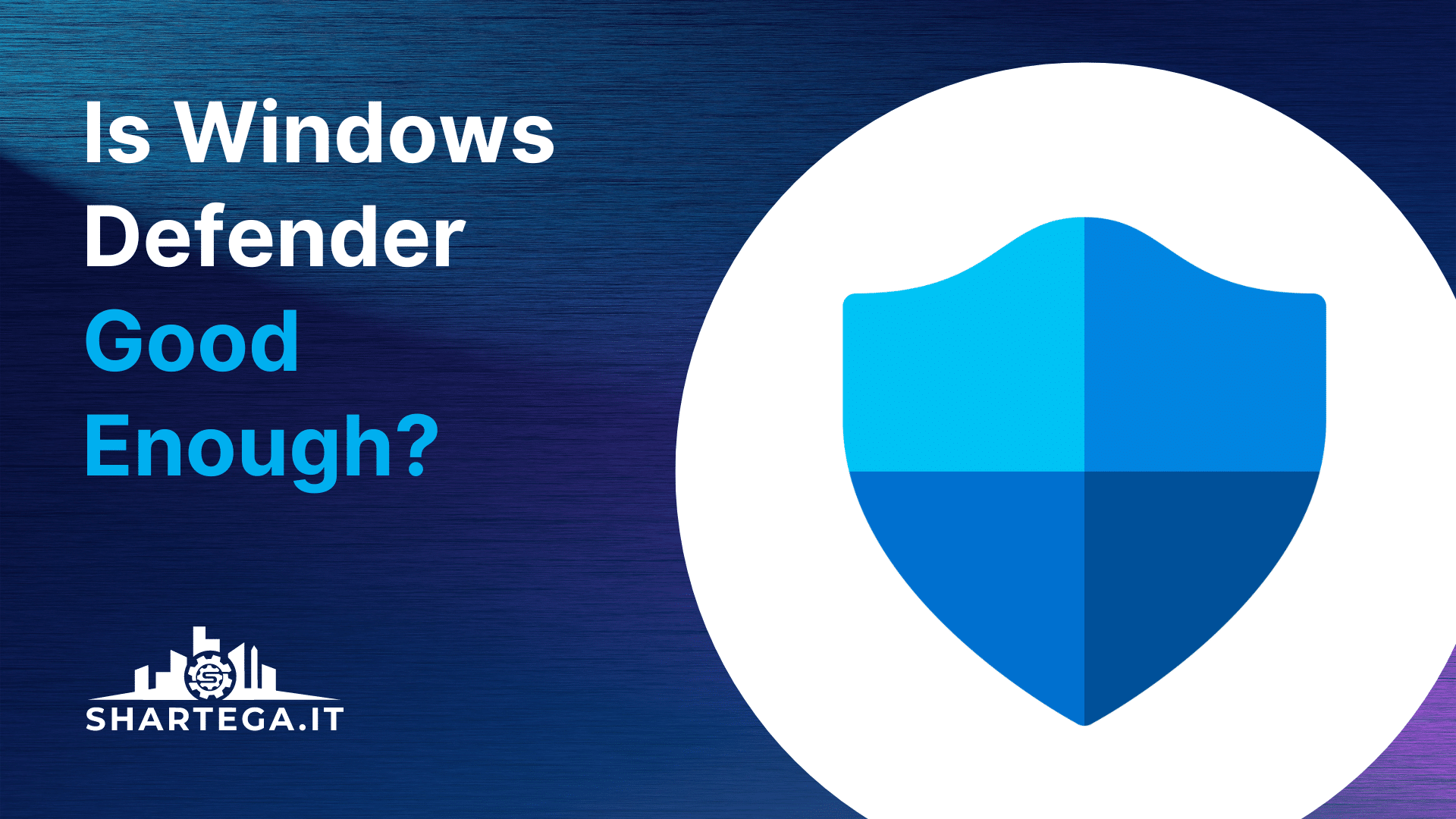When it comes to protecting your computer from viruses and other malware, one of the most commonly used tools is Windows Defender. But the question that many users ask is whether Windows Defender is good enough to keep their devices safe from all kinds of cyber threats. In this article, we’ll answer that question and provide you with some insights into what you need to know about Windows Defender.
Is Windows Defender Good Enough to Keep You Safe?
The short answer is yes, Windows Defender is good enough to keep your computer safe from most cyber threats. Microsoft has been improving Windows Defender over the years, and it now provides a solid level of protection that is sufficient for most users.
However, there are certain situations where Windows Defender may not be enough. For example, if you are a high-risk user, such as a journalist or an activist, or if you frequently engage in risky online behavior, such as downloading files from unknown sources, then you may need to use additional security tools to protect your device.
What is Windows Defender?
Windows Defender is a built-in antivirus software that comes with Windows 10 and Windows 11. It is designed to protect your device from viruses, malware, spyware, and other cyber threats. Windows Defender uses real-time protection to monitor your system for any suspicious activities, and it can remove any threats it detects automatically.
A Brief History of Windows Defender
Windows Defender has come a long way since its inception. Its predecessor, Microsoft Security Essentials, was released back in 2009 as a free antivirus program for Windows XP, Vista, and 7. It quickly became a popular choice among users who wanted a basic antivirus program that wouldn’t cost them a dime.
However, Microsoft Security Essentials had its fair share of criticism, particularly around its effectiveness in detecting and removing malware. Despite this, it was still a decent choice for those who were on a budget and needed basic protection.
In 2012, Microsoft released an update to Security Essentials that brought significant improvements, including enhanced malware detection and removal, improved performance, and a revamped user interface. The update also marked the beginning of the end for Security Essentials as a standalone product, as Microsoft began incorporating its antivirus technology into Windows Defender.
Fast forward to today, and Windows Defender has become a standard part of Windows 10, offering advanced features like real-time protection, cloud-based protection, and machine learning-based threat detection. It has consistently ranked among the top antivirus programs in independent testing, proving its effectiveness in detecting and removing malware.
What Are the Features of Windows Defender?
Windows Defender comes with a range of features, including:
- Real-time protection: Windows Defender runs in the background and constantly monitors your computer for any potential threats.
- Virus scanning: Windows Defender can scan your computer for viruses and other types of malware.
- Firewall protection: Windows Defender includes a built-in firewall that can help protect your computer from network-based attacks.
- Browser protection: Windows Defender can also protect you while you browse the internet by blocking malicious websites and downloads.
- Parental controls: Windows Defender also includes parental controls to help keep your children safe online.
Pros and Cons of Windows Defender
Like any antivirus program, Windows Defender has its pros and cons. Here are some of the most significant advantages and disadvantages:
Pros
It’s included with every version of Windows, so there’s no need to download and install a separate program.
It provides real-time protection against viruses, spyware, and other malicious software.
It’s regularly updated with the latest virus definitions.
It’s lightweight and non-intrusive, so it doesn’t slow down your computer.
It includes various advanced options such as cloud-based protection, automatic sample submission, and network protection.
Cons
- It may not be as effective as other antivirus programs in detecting and removing advanced threats.
- It does not include a password manager, which is a crucial tool for users to keep all of their passwords stored in a secure digital vault.
- It may not be enough for users who engage in high-risk activities such as downloading files from untrusted sources or visiting malicious websites.
- It may not have as many features as other antivirus programs.
- It may not be suitable for users who want more control over their antivirus program.
- If you are running macOS or Linux, you obviously cannot use it.
How to Optimize Windows Defender for Better Protection
If you decide to stick with Windows Defender, there are some steps you can take to optimize its performance and stay protected. Here are some tips:
Keep Windows Up To Date
Microsoft regularly releases updates for Windows Defender, so it’s important to keep your device up to date to ensure you have the latest version of the software. In addition, keeping your operating system up to date can help prevent vulnerabilities that cybercriminals could exploit.
Use Strong Passwords
Using strong passwords is another important step to protect your device. Make sure to use a unique and complex password for your Windows account, and enable two-factor authentication whenever possible.
Enable Controlled Folder Access
Windows Defender also includes a feature called Controlled Folder Access, which can help protect your files and folders from unauthorized changes. You can enable this feature by going to Windows Security > Virus & threat protection > Manage settings > Controlled folder access.
Alternatives To Windows Defender
If you’re considering an alternative to Windows Defender, you’re in luck—there are plenty of other antivirus programs available that offer unique features and benefits. Here are some of the most popular antivirus programs that you might want to consider:
Norton AntiVirus Plus
Norton AntiVirus Plus offers comprehensive antivirus protection, with advanced features like a firewall, cloud-based protection, and spam filtering. It’s known for its exceptional ability to detect and remove threats, and it’s often recommended by experts in the industry.
Bitdefender Antivirus Plus
Bitdefender is a powerful antivirus program that offers cutting-edge technology to detect and remove malware. It includes features like anti-phishing, anti-fraud, and anti-spam protection, making it a great option for those who want a strong layer of protection against online threats.
Avast
Avast is a free and easy-to-use antivirus program that offers features like anti-phishing, anti-spam, and anti-spyware protection. It’s known for its user-friendly interface and simplicity, which makes it a great option for those who may be less experienced with antivirus software.
McAfee
McAfee is a comprehensive antivirus program that offers a range of features like anti-phishing, anti-spam, and anti-spyware protection. It’s known for its high level of detection and removal of threats, and it’s often recommended as a top choice by experts in the industry.
Keep in mind that using one of these programs will override Windows Defender as your primary security defense.
Conclusion
Overall, Windows Defender is a good enough antivirus software that can provide sufficient protection for most users. However, it’s important to understand that no single tool can protect you from all cyber threats. By following the tips outlined in this article, you can optimize Windows Defender’s performance and keep your device safe from cybercriminals.
With that said, if you are looking for additional protection, there are other antivirus software options available on the market that may suit your needs. Ultimately, the choice of antivirus software you use will depend on your specific requirements and preferences.





